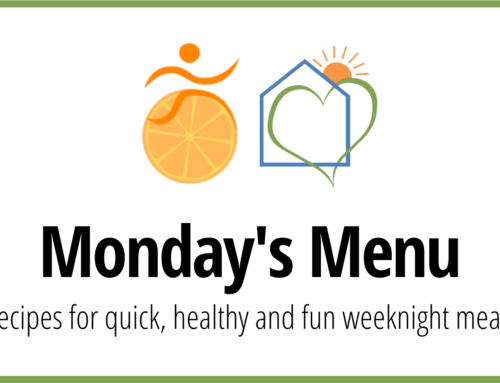An attitude of gratitude
Submitted by Shelby Wood
Recently I have started a gratitude journal (which I picked up from TJ Maxx for $4.99! Score!) with the intention of being deliberate in stopping to note the things both large and small that I noticed being grateful for during the day. Some days I find myself writing larger things like “the unwavering support of my friends and family” and other days it takes more thought to notice beautiful little moments like “how content Kidd (my horse) looked while we stood together and he grazed in the sun”. It does require more effort to identify things to be grateful for on the more challenging days, and yet those days seem to be when the journaling process is most impactful. For today’s Wellness Wednesday, my intention is to share with you some of the research I have found in support of an attitude of gratitude and how it influenced my decision to start my own gratitude journal.
In a NPR article “If You Feel Thankful, Write It Down. It’s Good For Your Health” by Maanvi Singh (2018) it is noted that a growing body of research helps demonstrate that practicing gratitude can: improve sleep, decrease stress, help interpersonal relationships, aid in the practice of healthier eating, lower risk of heart disease and decrease symptoms of depression. (Singh, 2018) The article continues to note research by Sonja Lyubomirsky, Psychology Professor at UC Riverside, has found that noting gratitude once per week increases happiness, though three times per week did not, indicating that there’s also the risk where too much may no longer be beneficial. (Sing, 2018) Singh continues to note that there is also a lack of research to demonstrate gratitude’s impact on clinical depression, anxiety and suicidal tendencies. Despite the research short comings Laurie Santos, of Yale University, is noted in this NPR article as saying:
What gratitude can do is give us hope. “The research shows that focusing on the positive, in addition to the negative, can boost our mood more than we expect,” says Santos. (Singh, 2018)
A separate article from the Institute for Habits of Mind by Wendy Baron, MA states:
And, although gratitude is indeed a pleasant emotion, feeling grateful is a conscious choice, a way of seeing and interacting with the world. To live with an attitude of gratitude, we need to choose it over and over and over and over again. Even when we are feeling hopeless. Even when we are feeling afraid. Even when we are grieving.
To cultivate an attitude of gratitude, we start with the intention to pay attention to the good things in life, the learning opportunities, and our attitudes and behaviors. (Baron, 2021)
Positivepsychology.com also has a lot of information on gratitude, including an article titled “14 Health Benefits of Practicing Gratitude According to Science” by Kori D. Miller, MA (2022). This article notes that gratitude research is ongoing and that there is also some research that does not demonstrate positive outcomes of this practice. Despite noting this Miller spends a majority of the article exploring ways that gratitude may be helpful in practice noting that giving and/or receiving gratitude releases dopamine. Dopamine is a chemical in our brain that is akin to feelings of pleasure. (Watson, 2021). Miller continues to explain that through the practice of gratitude we’re essentially able to increase our dopamine levels, thereby helping to improve our feelings of pleasure.
What my research on gratitude suggests is that it is a beneficial practice overall. Singh notes that the jury is still out on the level of impact for individuals with clinical depression, anxiety and suicidal tendencies due to lack of research. (Singh, 2018) There seems to be some notion that every individual may practice gratitude differently with benefit, and there also seems to be research showing that practicing once per week is enough. While the research isn’t able to identify a specific formula to use when practicing gratitude, the overarching notion is that it helps improve mood and our interpersonal relationships. For now, I will continue to keep my gratitude journal to practice being mindful and intentional in identifying the beautiful moments that occur even on the most difficult days.
Click here for a printable Gratitude Journal Sample
Works Cited:
Baron, Wendy. “With an Attitude of Gratitude.” The Institute for Habits of Mind, 22 Aug. 2021, https://www.habitsofmindinstitute.org/with-an-attitude-of-gratitude/.
Miller, Kori D. “14 Health Benefits of Practicing Gratitude According to Science.” PositivePsychology.com, 24 Feb. 2022, https://positivepsychology.com/benefits-of-gratitude/.
Singh, Maanvi. “If You Feel Thankful, Write It down. It’s Good for Your Health.” NPR, NPR, 24 Dec. 2018, https://www.npr.org/sections/health-shots/2018/12/24/678232331/if-you-feel-thankful-write-it-down-its-good-for-your-health.
Watson, Stephanie. “Dopamine: The Pathway to Pleasure.” Harvard Health, 20 July 2021, https://www.health.harvard.edu/mind-and-mood/dopamine-the-pathway-to-pleasure.
If you have a wellness themed topic you would like to share or learn more about, and/or blog/vlog about as an expert in a health/wellness related field, please reach out to shelby@cclyme.org.
Shelby Wood
Manager of Program Development
CommunityCare of Lyme
Shelby@cclyme.org
802-468-7776






Leave A Comment